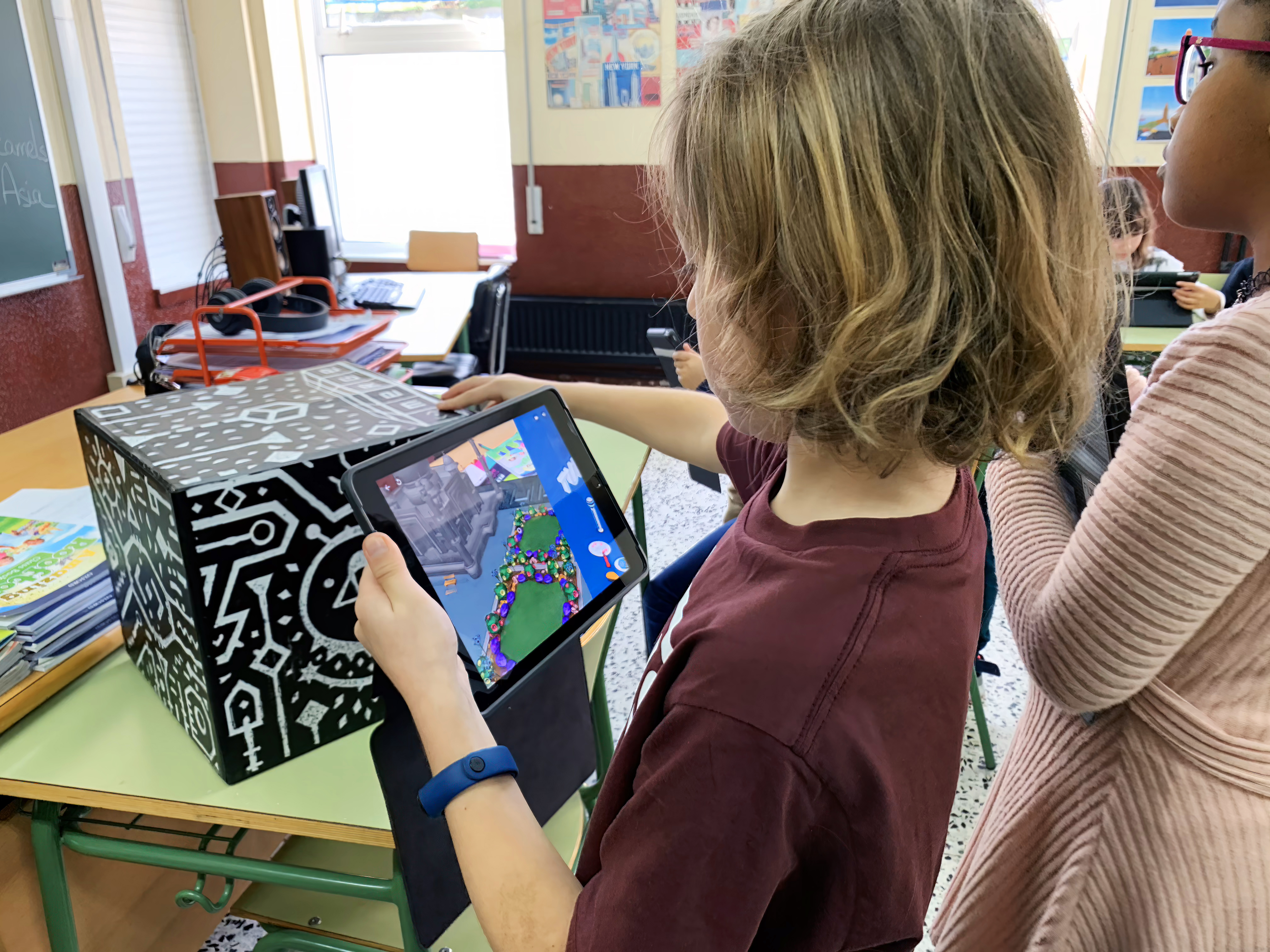
Topic(s) addressed
The project addressed a range of topics, including ICT, digital competences, creativity, cultural heritage, early childhood and primary education, artificial intelligence, robotics, coding, programming and virtual reality.
Target group(s)
The initiative attracted an impressive number of participants including 2,000+ students and 100+ teachers.
Methodologies
The students engaged in design-oriented and project-based studies, using games created by themselves to enhance their thinking skills and foster a culture of sharing through group work. These learning experiences encompassed cooperative learning, design thinking, project-based learning, place-based learning, experience-based learning, peer-to-peer social learning, collaborative learning spaces, DIY activities, educational games, and informal learning facilitated by the Science club.
Innovation environment
The project focused on establishing safe and innovative learning environments, leveraging immersive technologies for expanded learning spaces, and promoting sustainable resource use through cloud-based platforms. We also emphasized open sharing of knowledge and resources, adopting a holistic approach to foster creativity, entrepreneurship, and active participation. Through cross-sectoral cooperation, we enriched overall learning experiences and created inclusive educational environments.
Teachers’ role
In this project, teachers played a key role as agents of innovation. They actively contributed to the development and implementation of innovative learning experiences for students, exploring new pedagogical approaches through immersive technologies, and continuously enhancing their digital literacy and teaching skills. Collaboration with peers within and among partner schools allowed them to exchange experiences, ideas, and resources, collectively contributing to the project's objectives.
Impact and output
he project's impact is widespread. Students actively engaged with immersive technologies, delving into cultural heritage and honing skills like creativity and critical thinking. These technologies made learning inclusive, benefiting various students. Moreover, the project's influence extends beyond participants, reaching other students, teachers, schools, and the community. Through conferences, workshops, and media, it shared outcomes, methodologies, and best practices.
Video
- Reference
- 2019-1-ES01-KA229-065937
- Project locations
- Spain
- Project category
- Primary education
- Project year
- 2023
Stakeholders
Coordinators
CEIP Ponte dos Brozos
- Address
- Spain
Participants
Grupamento De Escolas De Barcelos
- Address
- Portugal
Centro Público Integrado O Cruce
- Address
- Spain
I.C. Borsellino Ajello
- Address
- Italy
Özel Anabilim Ortaokulu
- Address
- Türkiye
